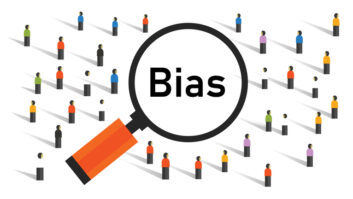IHEARTRADIO MUSIC AWARDS

Musician Pharrell Williams speaks onstage during the 2014 iHeartRadio Music Awards at The Shrine Auditorium on May 1 in Los Angeles, California. The awards were broadcast live on NBC. Photo courtesy Clear Channel Media + Entertainment. The recent iHeartRadio Music Awards primetime television show on NBC was an epic moment for the entire radio industry.
Everyone in radio from the smallest to the largest market can celebrate this occasion as the power of the radio medium was recognized on the national stage. Let there be no doubt that radio was the foundation of the program’s very existence. That message will resonate with viewers, artists and advertisers.
The iHeartRadio Music Awards is a brilliant concept and represents the type of “big idea” that places radio in the major leagues of media. The program heralds: “Radio Makes the Hits, the Stars and Now Rightfully Proclaims Those Honors!”
Bob Pittman and his creative team at Clear Channel understand that radio is and always has been a major player in the entertainment business. It is clear that the hugely successful iHeartRadio Music Festival fostered this next step of capitalizing on radio’s historic partnership with singers and songwriters by creating the concept of an awards program not on cable, not on an upstart network or in syndication, but by going right to the top by working with one of the “big three,” in this case NBC. Someone at Clear Channel said, “That is where radio and this show belong.”
Naysayers may say this is a TV show, but they are wrong. The iHeartRadio Music Awards is an extension of the radio brand, and yes, recognition by the big players that radio operates in the big leagues. How great it would have been if the RAB and NAB had created image-building branding for radio to run within the show as paid commercials.
At a time when many would write radio off as a local medium, Clear Channel had the vision to say no, radio is the major player in the music business! My guess is that this is only the beginning. Will the next evolution of “The Voice” or “American Idol” have its roots in a cross-platform production with a radio company? Why not?
The exponential benefits of the iHeartRadio Music Awards are enormous. The entire industry has a share in the success of radio taking national center stage in prime time on the first day of May 2014.
Congratulations to everyone at Clear Channel who made the iHeartRadio Music Awards possible. This is all good, very, very good for radio.
Gordon Hastings
Stamford, Conn.
The author is a founder and retired president and CEO of the Broadcasters Foundation of America. He also served as president and CEO of Katz Radio and Katz Television and was a founding director of the Radio Mercury Awards.
OPERATING COSTS
Regarding “SSR Renews Push for FM Class C4,” published on radioworld.com on April 1:
I personally don’t see this as doing much at all, except driving up operating costs. Double your energy bill for a 3-mile increase in coverage? Seriously?
Much like the Class A 3 kW to 6 kW power increase of years ago — not much improvement in real-world coverage was obtained or should be expected.
Tim Sawyer
Managing Partner
T.Z. Sawyer Technical Consultants
Falls Church, Va.
LOBBYING? USE “FORCE MULTIPLIERS”
In his Feb. 1 commentary “Don’t Just Keep Us ‘Down on the Farm,’” Larry Tighe wrote: “One answer [for AM stations] is your local congressman. In New Jersey, a local broadcaster in a large city was a tennis buddy of the late Rep. Matthew Rinaldo, who slipped into an unrelated bill that any city with more than 100,000 residents must have a full-time AM radio station. Elizabeth, N.J., gained a full-time AM station. It was that easy.”
I was at one time Rep. Rinaldo’s legislative counsel on Capitol Hill. Rinaldo’s task was relatively “easy” because he was not a typical “local congressman.” He served on the House Subcommittee on Communications, which has direct jurisdiction over FCC regulation. He also had more seniority (basically, higher rank) than any other Republican on the subcommittee. Those “force multipliers” smoothed his path considerably.
If small commercial broadcasters begin to lobby legislators more energetically — as I certainly hope they will — I urge them not to limit themselves exclusively to local legislators and/or those whom they know through their social network.
Stations should prioritize approaching legislators who (a) serve on a subcommittee, or failing that, a full committee that has direct jurisdiction over the subject matter involved, and (b) ideally, have some seniority under their belts. For obvious reasons, a legislator from the majority party is likely to be more effective; a bipartisan mix of sponsors is even better.
Also, if the goal is to recruit legislators with “force multipliers,” regardless of geographical location, access to all possible legislators will usually be easier for a national organization than a radio station that is locally based.
In this regard, Larry Tighe is absolutely correct about the NAB: Sixteen years of lobbying on FCC issues have convinced me that the NAB does not represent small commercial broadcasters at all. It is time — really, past time — for small commercial broadcasters to form their own national organization.
The group will probably have more clout if it is able to combine small commercial stations on both the AM and FM bands. In any event: If enough radio stations sign up, whatever their orientation, dues can probably be held to $50 or $100 a year. I suggest a “flashy” name for the new group. Personally, I would call it the Federation of Independent Radio Enterprises: FIRE.
Don Schellhardt
Waterbury, Conn.
The author has been a government relations attorney since 1975. He and Nickolaus Leggett were the first parties to propose a low-power FM radio service to the FCC.
VOA CUTS
Rep. Matt Salmon (R-Ariz.) has introduced a bill that would block any federal dollars from going to VOA. He calls it a Cold War “relic” that’s been “rendered obsolete with the rise of the Internet and social media.”
The VOA received $196.4 million during the 2013 fiscal year. Perhaps Rep. Salmon has had his eyes closed for too long. The “Cold War” is taking new form. Major governments such as China and Russia are taking steps to isolate their own brand of Internet from the rest of the world, and censor what content they choose to allow through. Terrorists operating in Third World countries don’t have to worry about the Internet because it does not exist in many of these locations. In both situations, radio is the only voice that can carry the message of hope and freedom to these people.
Yes, major governments may have the money to build jamming stations, but they will need to spend money to do so. Why make it easy for them?
I suggest that all contact their representatives and tell them “no” to VOA cuts.
Paul Litwinovich
Director of Engineering
WSHU Public Radio Group
Fairfield, Conn.
MYSTERY FOLLOWUP
Hello Mark Persons: Just read —and enjoyed — your article in RW (“What Is That Irritating Sound?” May 7 issue). Bob Orban will be interested in the cause. It was a good display of how stations can cooperate to chase a problem.
Keep creating the good reads.
Paul Gregg
President
Bauer Transmitters Inc.
El Paso, Texas
NO MORE MUSIC?
Sounds like a lot of stations will stop playing music at all (“New Royalty Bill Surfaces,” radioworld.com, May 8). And what about TV stations that are co-owned with all-talk/news radio stations?
Sounds like just more of the “take the money out of the TV broadcasters’ pockets, by eliminating retrans fees” mantra.
I have to wonder why so many laws seem to always fault the TV broadcasters, and seem to “zero in” on the retransmission money, which TV stations rely on for their livelihood.
If radio stations are not paying what some people would call “fair,” why pull the rug out from under the TV stations? It probably will result in some sort of “spinoff” of radio and TV properties to separate ownership companies, if nothing else.
Ken W. English
Studio Engineer
KSL(TV)
Salt Lake CityBEYOND 20th CENTURY TECH
Finally, the public alerting service is moving beyond mid-20th century technology and reaching public in an intelligent and targeted manner (“Texas DPS Installs Digital Alert Systems Equipment,” radioworld.com, May 7).
This should provide the capability of notifying individuals at risk rather than the “sky is falling” broadcast system of the past — if used responsibly by the public service agencies.
Larry Kent Woodmansee
Fairfax, Va.






